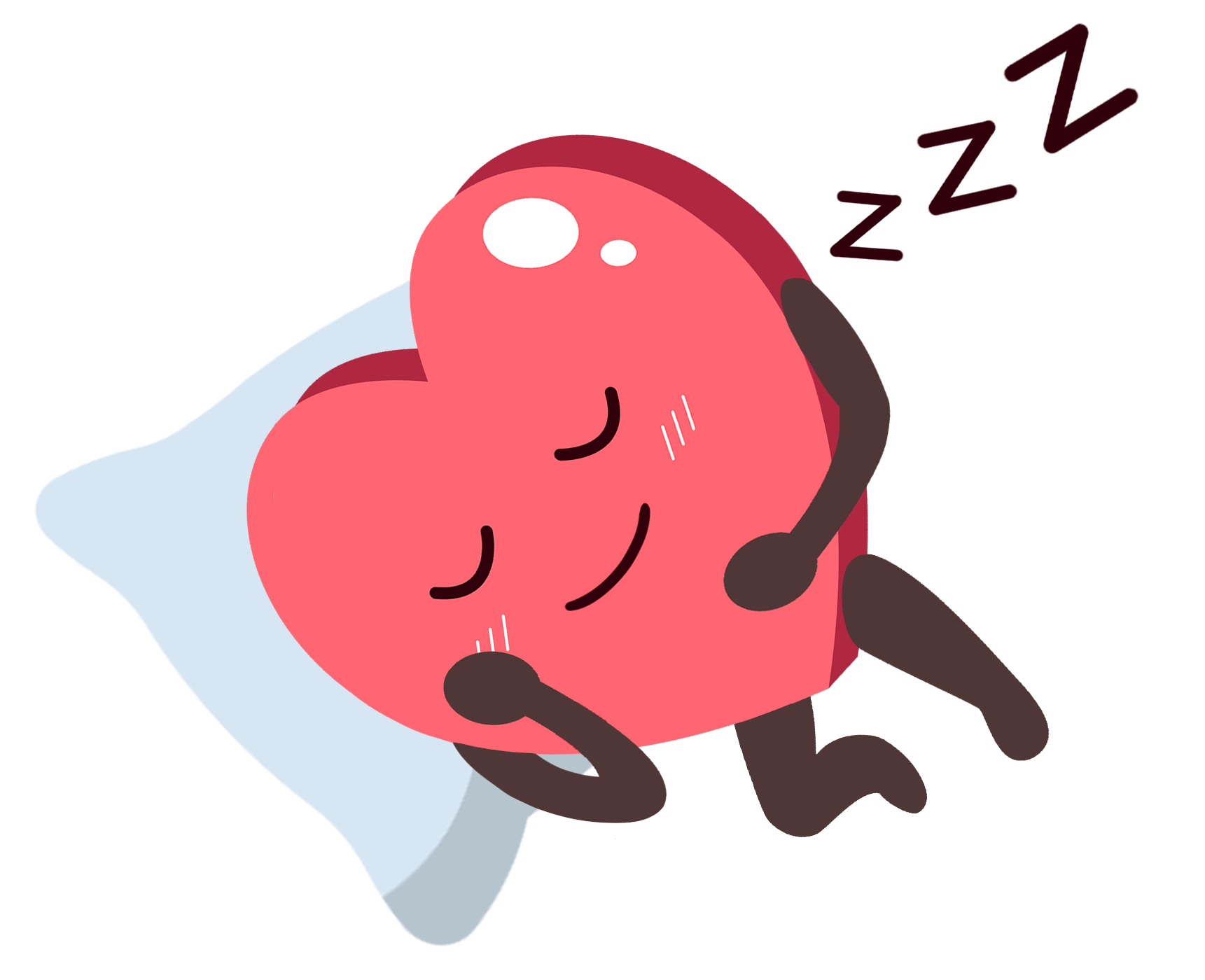The American Academy of Sleep Medicine and Sleep Research Society guidelines for healthy sleep advise that sleep is essential for good health.1 They recommended that adults sleep seven hours or more per night on a regular basis. Similarly, guidelines from the National Sleep Foundation recommend that adults get 7-9 hours of high quality sleep each night.2,3
Sleep quality and duration has been found to be integral to cardiovascular health, leading to the American Heart Association (AHA) adding it to Life’s Simple 7 in 2022 to form Life’s Essential 8.4 AHA guidance recommends 7-9 hours of high quality sleep each night for optimal cardiovascular health. The exact pathophysiology behind the connection between poor sleep and cardiovascular disease (CVD) have not been precisely defined, but the association has been demonstrated in numerous studies. Additionally, poor sleep is associated with other contributors to cardiovascular health such as diabetes.
Sleep was included as one of Life’s Essential Eight after a cross sectional study in 2019 that evaluated for associations between sleep characteristics and cardiometabolic risk factors among 507 women (62% non-white/Hispanic, ages 20-79).2 The study found that sufficient sleep (defined as ≥7 hours of sleep each night) was associated with a higher overall cardiovascular health score (calculated using the AHA Life’s Simple 7 [LS7] score, scored 0-14 with higher scores indicating better cardiovascular health; p<0.01). The following sleep characteristics were found to be significantly associated with higher LS7 scores:
- Sleep duration (LS7 scores 10.6 for ≥7 hours vs 9.5 for <7 hours, p<0.0001)
- Sleep quality assessed by the Pittsburgh Sleep Quality Index (PSQI, scores ≥5 indicate poor sleep quality; 10.4 for good sleep vs 9.9 for poor sleep, p=0.01)
- Insomnia (10.5 vs 9.7, p<0.001); snoring (10.5 vs 9.2., p<0.001)
- Obstructive sleep apnea (10.6 vs 8.2, p<0.001).
Participants were more likely to meet >4 of the AHA’s seven original components of cardiovascular health (body mass index, cholesterol, blood pressure, hemoglobin A1c, smoking status, physical activity, and diet) if they slept ≥7 hours per night (47.9% vs 29.4%, p<0.0001), had good sleep quality (40.6% vs 36.7%, p=0.02), did not have insomnia (51.3% vs 25.8%, p=0.0002), and did not snore (58.2% vs 19.1%, p<0.0001).2
A 2024 study extracted data from the National Health and Nutrition Examination Survey database to evaluate the relationship between poor quality sleep and risk of coronary heart disease and stroke in 6,830 individuals over the age of 40 years (1,001 with CVD).3 Those without CVD were more likely to report getting an optimal amount of sleep (7-8 hours per night; 51.04% vs 11.79%, p<0.01). Conversely, those with CVD were more likely to report getting <7 hours of sleep per night (44.56% vs 20.31%, p<0.01), >8 hours of sleep per night (43.66% vs 28.65%, p<0.01), and daytime sleepiness (68.33% vs 16.19%, p<0.01). Those with CVD were also more likely to have contributors to poor sleep, including snoring (87.31% vs 47.35%, p<0.01) and having a later bedtime (after 11 PM; 68.03% vs 44.76%, p<0.01).
A 2024 cross-sectional study (n=1,258) evaluated the association between short sleep duration (defined as <6 hours per night based on polysomnography) and the incidence of CVD and/or cerebrovascular disease (CBVD).4 Men and women with varying levels of difficulty sleeping without baseline heart disease or history of stroke were included and were followed up for 9.21±4.08 years. Individuals who slept <6 hours per night had a higher incidence of CBVD compared to individuals who slept ≥6 hours (59.2% vs 40.8%, p<0.01).
A 2024 prospective study followed 2,964 women ages 42-52 for 16 visits over the course of 22 years.5 Study participants were premenopausal or early perimenopausal without CVD at baseline. At each of the 16 visits, participants were asked to answer questions regarding insomnia symptoms, daily sleep duration, vasomotor symptoms, depressive symptoms, and CVD ascertainment (including myocardial infarction, stroke, heart failure, and revascularization). Of 667 participants with high insomnia symptoms (trouble falling asleep, waking up several times a night, or waking earlier than anticipated >3 times per week), CVD-free survival at ten years was similar for those with high and low symptoms of insomnia (80.1% vs 80.0%), but at 20 years was 3.4% worse among those with worse insomnia (24.4% vs 21.0%, Hazard Ratio [HR] 1.71, p=0.004). For individuals with short sleep duration (about 5 hours per night), CVD-free survival was 90.0% at 11 years and 26.3% at 20 years compared to 91.2% at 11 years and 27.1% at 20 years for those with moderate to long sleep duration (6-8 hours; HR 1.51, p<0.10). Slightly lower rates of CVD-free survival were seen for individuals with both high insomnia and short sleep, specifically at 15 and 20 years follow up (83.2% and 23.0%). For individuals with low insomnia symptoms and moderate sleep duration, CVD-free survival was 87.7% at 15 years and 27.4% at 20 years (HR 1.75, p=0.04). The study concluded that persistent insomnia symptoms that co-occur with short sleep are associated with higher CVD risk among women.
A 2003 prospective analysis of the data from the Nurses’ Health Study (n=121,700) examined the relationship between sleep duration and coronary heart disease in women.6 They found that suboptimal sleep duration was associated with increased risk of coronary heart disease, with an incidence of 2.22 per 1,000 person-years for ≤5 hours of sleep per night (Relative Risk [RR] 1.39, adjusted for age, diabetes mellitus, and hypertension), 1.52 for 6 hours of sleep (RR 1.18), 1.21 for 7 hours (RR 1.10), 1.19 for 8 hours (reference), and 1.90 for ≥9 hours (RR 1.37).
Shorter sleep duration is also an independent risk factor for diabetes, another contributor to the development of CVD.1 Another 2003 prospective analysis of the data from the Nurses’ Health Study compared sleep duration and incidence of diabetes, calculating relative risks adjusting for hypercholesterolemia, hypertension, smoking, snoring, exercise, alcohol use, depression, postmenopausal hormone use, and family history of diabetes.7 Diabetes incidence was 4.26 per 1,000 person-years for those who slept ≤5 hours per night (RR 1.18), 3.39 for 6 hours of sleep (RR 1.10), 3.39 for 7 hours (RR 1.02), 2.60 for 8 hours (reference), and 3.94 for ≥9 hours (RR 1.29).
Evidence is inconclusive about the health risks of adults sleeping more than nine hours per night on a regular basis.1 Although there is an association between sleeping more and health risks in adults, the relationship has not been shown to be causative, and some health conditions can cause increased sleep duration. Additionally, for those recovering from sleep debt and those with certain medical conditions, sleeping more than nine hours may be appropriate.
References
- Lloyd-Jones, D.M., et al. Life's Essential 8: Updating and Enhancing the American Heart Association's Construct of Cardiovascular Health: A Presidential Advisory From the American Heart Association. Circulation 146, e18-e43 (2022).
- Makarem, N., St-Onge, M.P., Liao, M., Lloyd-Jones, D.M. & Aggarwal, B. Association of sleep characteristics with cardiovascular health among women and differences by race/ethnicity and menopausal status: findings from the American Heart Association Go Red for Women Strategically Focused Research Network. Sleep Health 5, 501-508 (2019).
- Hou, X.Z., et al. Association of sleep characteristics with cardiovascular disease risk in adults over 40 years of age: a cross-sectional survey. Front Cardiovasc Med 11, 1308592 (2024).
- Pejovic, S., et al. Insomnia with objective but not subjective short sleep duration is associated with incident cardiovascular and/or cerebrovascular disease. J Clin Sleep Med (2024).
- Thurston, R.C., et al. Trajectories of Sleep Over Midlife and Incident Cardiovascular Disease Events in the Study of Women's Health Across the Nation. Circulation 149, 545-555 (2024).
- Ayas, N.T., et al. A prospective study of sleep duration and coronary heart disease in women. Arch Intern Med 163, 205-209 (2003).
- Ayas, N.T., et al. A prospective study of self-reported sleep duration and incident diabetes in women. Diabetes Care 26, 380-384 (2003).


